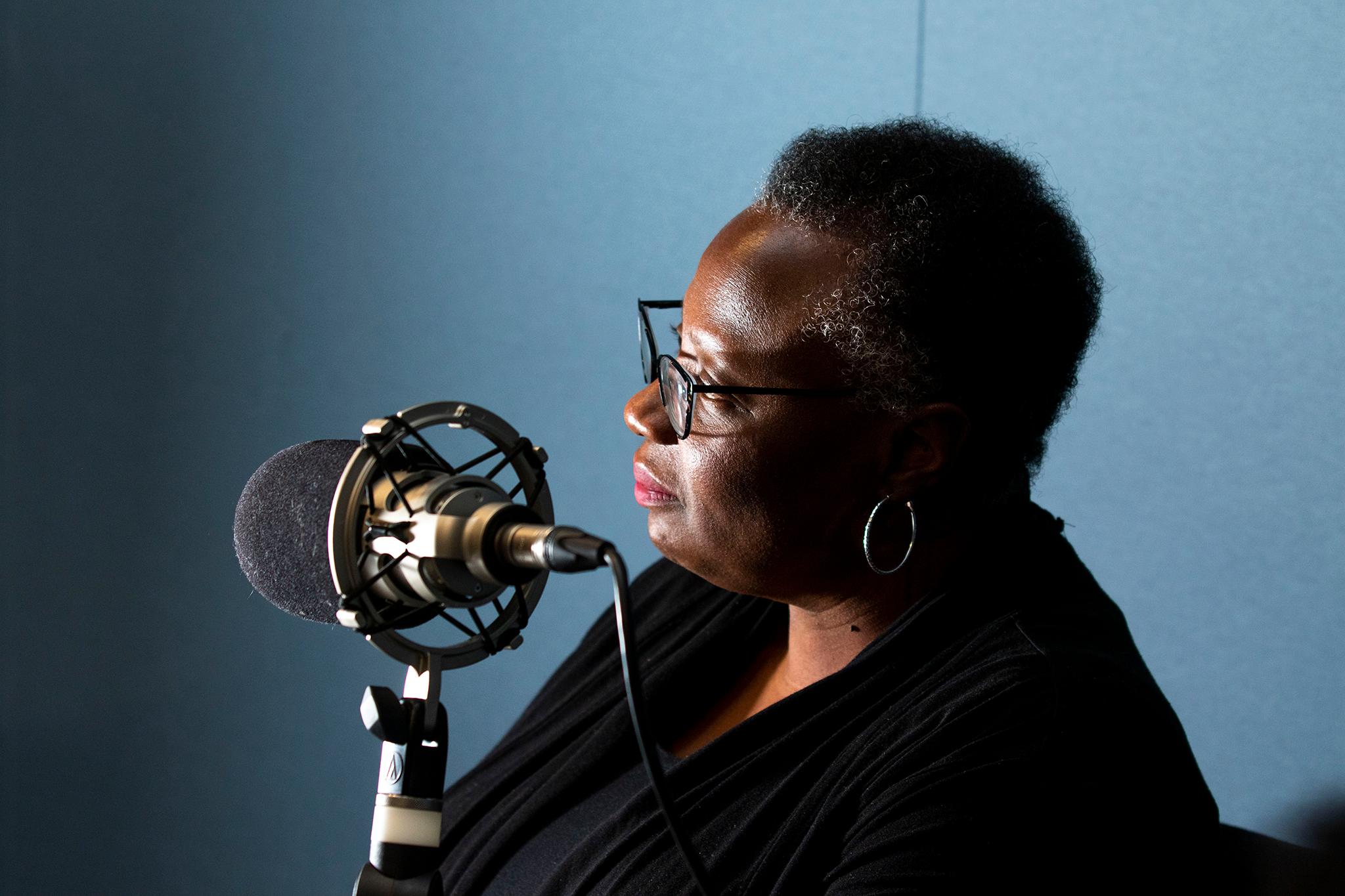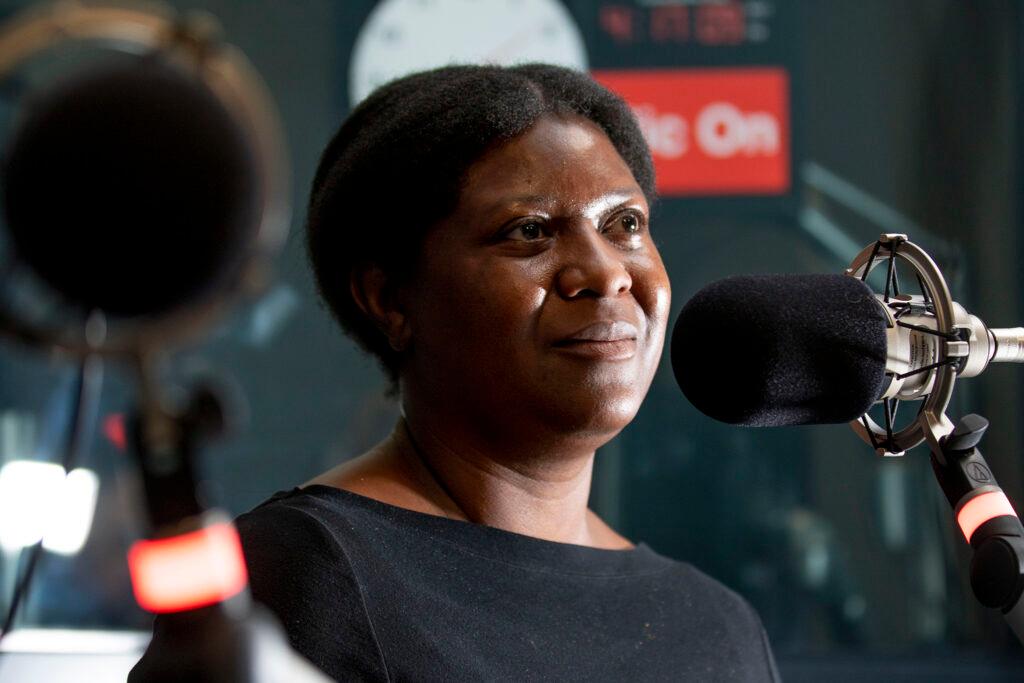
Three professors of color in the University of Denver’s Graduate School of Professional Psychology will not return this fall — decisions that are having a ripple effect, as the dean of the department figures out how to cover their courses and solve the problems that made them want to leave.
Tenured professor Terri M. Davis, 54, who is Black, and who directed the Doctorate in Psychology program in the graduate school (GSPP) for eight years, resigned last fall, effective this August, and has not announced where she will be going.
Davis said her reasons for leaving pertained to workload and lack of leadership opportunities.
“I am the program director. I am also tenured. However, the administrative demands have precluded my being able to really focus and delve into research, which is one of the reasons why I am leaving,” Davis said.
Without offering specifics, she added that she didn’t get the resources she needed from DU to make the changes she wanted in the program.
“There has been a lack of resources and opportunities to actually be the leader that I know myself to be,” Davis said. “So I’ve been very transitional in a system that has not wanted to change, been slow to change, wants to stay the same. And so I have had to figure out how to maintain a system, using mainly myself with a few shared staff members among the entire school with no one directly supporting the program along with me but students.
“So that was another reason why I needed to leave. I can’t uphold a system that doesn’t value me, and put in enough resources to make the program run more effectively and efficiently than it does now.”
Davis, and two other GSPP professors, Apryl Alexander and Travis Heath, spoke in-depth for the first time with CPR News about their decisions to leave. The three mentioned a lack of resources, an overwhelming workload, and challenges facing DU’s students of color in explaining their decisions.
Dr. Shelly Smith-Acuña, 62, who is white, served as Dean of DU’s GSPP for the last 10 years before returning to teaching clinical psychology this fall. She said in an interview this week that the faculty members’ concerns have brought about changes in several ways, but also bring a spotlight to persistent problems.
“These three faculty members really did a good job on working on the process of change,” Smith-Acuña said. She added that they, “were doing an outstanding job of surfacing the problematic issues some students were experiencing, and they were really helpful in setting the stage for us to do a better job in addressing them.”
The University of Denver, known as DU, is a private university southeast of downtown with an enrollment of 11,000 students. The student body was 64 percent white, 11 percent Latino or Hispanic, eight percent international students, and three percent Black in 2018, the last year for which statistics have been posted by the university’s Office of Diversity, Equity & Inclusion. Students entering in 2021 are 28 percent students of color, according to a DU website page about the class of 2025, which does not break the number down by race.
Faculty-wise, the numbers are similar. According to an April 2022 Chronicle of Higher Education article, DU has 742 full-time faculty members, 73.5 percent of whom are white. Fewer than 1 percent are Native American; 7.1 percent are Hispanic; 3.5 percent are Black and 8.4 percent are Asian; almost half — 48 percent — are women, the article states.
'Tokenism, trolling, bullying, disregard of our cultural values'
According to Gabriella Gutierrez y Muhs, co-editor of "Presumed Incompetent: The Intersections of Race and Class for Women in Academia," the issues Davis spoke of are common to women of color in academia.
“Academia is willing to discuss anything but academia,” she said. One of the topics that isn’t often discussed in her view is the working climate for professors of color. Gutierrez y Muhs is a professor of modern languages and women’s studies at Seattle University.
“Due to the structural racism that needs to be uprooted, we get invisible work,” Gutierrez y Muhs said, echoing what Davis had mentioned.
When collecting research for her book, the second edition of which was published in 2020, the professor, who also holds a doctorate, said she often heard that faculty members of color are seen as troublemakers and that they face a number of stressors: “tokenism, trolling, bullying, disregard of our cultural values.”
Other common experiences, she said, include “ignoring us, silencing us, gaslighting us … these things have happened to all of us professors of color.”
She gave an example of being in an elevator with a fellow faculty member who would not engage with her on academic topics.
“She turns around and says to me, ‘Can you give me your enchilada recipe?’ To this day, this woman does not talk to me, because I turned around and said, ‘Well, I would love your donut recipe,’” Gutierrez y Muhs said, laughing at the recall.
She also recalled showing up at a book launch event and being asked by a fellow professor why she was there.
“This is a constant for professors of color,” she said. “This is what we talk about when we talk about climate.”
Davis said supervising faculty at DU who say offensive things but have been working there longer presents a challenge for which no good solution could be found.
“Day-to-day, having to navigate what they say and what they do in classrooms, in supervision, and in other relationships, and then how I have to, as director, decide what steps I have to take, need to take, or just can’t take literally in another day or another hour, is also part of this,” Davis said. “So, I’m not like, out of the trauma. It’s something that is occurring still.”
Another departing faculty member is Apryl Alexander, 39, a tenured professor who is also Black. She also holds a doctoral degree; she has worked as an associate professor in DU’s GSPP for six years, teaching in the master's in forensic psychology program while directing two clinics. She was recruited this spring for a professorship at the University of North Carolina at Charlotte; her title will be Metrolina Distinguished Professor of Health and Policy.

Alexander’s reasons for departing were similar to Davis’: a heavy workload, difficulty coping with the behaviors of colleagues, and draining demands on her time and energy.
“There’s a lot of great things that are happening at DU and within our department,” Dr. Alexander said. “We have a lot of flexibility to do some innovative things with our students, build programs, like I have. But where are the resources? When do we take the time to renegotiate our workload? So workload is one of the primary reasons (why) I’m leaving.”
She recently received a federal grant that would allow students to be paid for field placements or internships, which are often otherwise unpaid, but there’s no one to help her administer it.
“So things like billing and managing the grant — I also have to do that in addition to training students,” Alexander said. “In addition to my teaching load. I’ve taught anywhere from seven to 10 classes in a single year, while doing the supervision of students. While doing research. While doing community work. So there hasn’t been that explicit opportunity to renegotiate what I’m doing and what that looks like for me.”
Being one of few Black women nationally recognized as a forensic psychologist, she is sometimes asked to serve on the dissertation committee of Black female students who attend other universities — an extra obligation she takes on with honor. But, she said: “That’s not extra pay [and] it takes people away from doing research and other activities in order to get promoted even further in academia. Again, this isn’t just a problem for us. This is a problem for a lot of Black academics across the country.”
DU and other universities struggle to fix systemic issues
Dr. Frank Tuitt agrees. Currently, he is the Vice President and Chief Diversity Officer, and a professor of higher education and student affairs at the University of Connecticut. From 2004 until 2019, he was on the faculty at DU, in the Morgridge College of Education. He also served as the university’s chief diversity officer from 2015 until 2019, during which time he focused on creating an inclusive and equitable institutional environment, both inside and outside the classroom.
“I do feel like over that time, we saw growth in the institution’s efforts, but not surprisingly, as you make progress in certain areas in achieving success in moving the institution forward, you create new sets of challenges, so I think DU is now facing the next level of having to respond to increasing demands in terms of how it supports its racially minoritized community.”
He said that the problems are not unique to DU. “The experiences described [by these professors] are consistent with what I’ve been seeing across the country with racially minoritized faculty and staff feeling challenged to do the work they’ve been hired to do. Unfortunately, in spite of our best efforts, we have not been able to transform our institutions to alleviate the undue burden placed on racially minoritized faculty, and we haven’t figured out how to value, reward, compensate, the real concrete ways, the extra labor that racially minoritized faculty engage in.”
Dean Smith-Acuña said the problems Alexander identified are things the university is struggling to fix for professors of color. With regard to her being invited onto dissertation committees of graduate students at other institutions, she said:
“Her skills are amazing, and it’s admirable that she wants to share them,” Smith-Acuña said. “I think this is one of those areas that we need better solutions for. Clearly, once we have a more diverse workforce, we will have other people besides these folks, who can share that labor. It’s hard to find a solution that compensates people for work they’re doing at another university. We need a new business model to figure out how to do that equitably.”
Another challenge Alexander identified relates to interacting with other faculty. She gave this example: “So you’ll have a day where you go to a meeting and something is said that is hostile or discriminatory against you. You’re dealing with that. I get back to my office and then that’s when a student runs in and says, ‘I need help — this happened with my supervisor, this happened with my professor.’ I didn’t even have a moment to breathe and process my own stuff, and then, this is being brought to me.”
And challenging other faculty members when they make what she perceives as offensive comments is a non-starter for her.
“And then what? They're not gonna accept that. And then what? Then they're on to teach the next year and they teach the same stuff,” Alexander said. “I don't have any power — any say —that's what's difficult with our students. I can help support them and validate their feelings and all of that in the moment. But then what?”
Smith-Acuña said it hurts to hear complaints like Alexander’s.
“It’s very painful to hear this and I appreciate these concerns being raised, and I do believe with some of our new structures, that some of these issues will be addressed head-on, and I believe the experience of our new dean is going to be really helpful in working through these issues,” Smith-Acuña said.
This month, DU announced that Torrey Wilson will start as Smith-Acuña’s replacement as dean of GSPP on Aug. 22. Wilson, who is Black, currently serves as the Dean of the College of Applied Behavioral Sciences at the University of Indianapolis. He holds a doctorate in counseling psychology. He has taught and studied the experiences of minority populations in group therapy, as well as sexism and sexual harassment in doctoral training programs.
Smith-Acuña said she had always intended to spend ten years as dean, and then return to teaching clinical psychology, which she will do as of this fall. She also said that visiting and adjunct professors will also be used to fill in the gaps left by departing faculty members Apryl Alexander and Travis Heath.
Heath, 42, a multi-racial associate professor in GSPP for the past two years, is the third departing faculty member of color from that department. He holds a doctorate and was serving as director of diversity, equity and inclusion and co-director of the international disaster psychology trauma and global mental health program.

He had earned tenure at his previous university — Denver Metropolitan University, where he had worked for a decade — but he did not receive tenure upon arriving at DU. He was also recruited for a job that he accepted: this fall he will join the faculty of San Diego State University — as the chair of the counseling and school psychology program.
Smith-Acuña said that although Heath didn’t arrive with tenure — a typical practice — he was hired as a visiting professor, and was put on a tenure track during his second year teaching there.
“He was awarded tenure here, after he was no longer a visiting professor,” Smith-Acuña said. He was recommended for tenure in March and tendered his resignation in May, before formally being offered tenure this month, she said.
Heath was less specific about the reasons for his decision to accept a different position but alluded to a negative experience he perceived Black students to be having.
“What I’ll say is that I think our students, especially our Black students, our students of color have been suffering in a lot of ways,” he said. “And what basically I’ve been told is that they feel like either at best they can only show up as partially themselves. And at worst they feel like active harm is being done. And I don't want to get into the particulars because I owe it to the students not to, but for me, that’s the part that I can’t reconcile.
“Because if I stay here and that’s continuing, I’m complicit with that. And if I’m behaving in ways that the academy traditionally behaves, then I’m a defacto white man, no matter what I actually am, that’s what I’m performing.”
Smith-Acuña said it was because of Davis, Alexander and Heath that some issues rose to the surface that could be corrected. For example, she said, students have complained of “a professor [who] makes problematic comments or doesn’t have up-to-date materials.”
Students didn’t always know if faculty were paying attention to such concerns.
“Dr. Heath encouraged students to look at ways that they’d know their concerns are being addressed,” Smith-Acuña said. “Now, faculty reply in writing to students’ course evaluations and provide feedback of that nature to students every quarter. Those were the kinds of concrete suggestions that have come out of the work that these three have been doing.”
The three professors alluded to the possibility of pay inequities, but they could not be sure who earns what, because of confidentiality around pay that occurs at private universities.
Smith-Acuña said that is also being addressed by the university. “We are working really carefully with pay equity and more transparency.”
In addition to hiring the new dean, a replacement has also been found for Davis’ position: Dr. Scarlett (Seong-In) Choi, currently the director of counseling psychology and an associate professor at Springfield College in Springfield, Mass. Choi, who is Asian, will replace Davis as the new PsyD Program Director and begin on Sept. 1, according to Davis.








